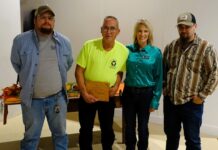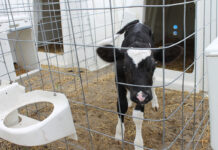LEXINGTON, Ky. – A collaborative effort between two colleges at the University of Kentucky, involving the Kentucky Tobacco Research and Development Center, holds opportunity to advance a potential new treatment for a variety of cancers.
Researchers in the College of Pharmacy and the College of Agriculture together with Leuchemix Inc., a research and development company based in California, are working together on the production of the plant “feverfew,” the raw material for the production of parthenolide.
Cancer drug. Previously, Craig Jordan and Peter Crooks at the university developed drug-like derivatives of parthenolide to further the pharmaceutical development of this potential anticancer agent.
These chemical derivatives, which appear to be particularly relevant to the treatment of leukemia, were licensed to and further developed by Leuchemix Inc.
“However, as these novel drug entities progressed through preclinical evaluation it became obvious to us and Leuchemix that we would require a large source of feverfew,” said Crooks.
This provided the basis for the collaborative input of the Kentucky Tobacco Research and Development Center at the University of Kentucky’s College of Agriculture, allowing them to provide the agronomic research needed for determining the best methods for growing feverfew.
Method. “We conducted preliminary experiments at Spindletop Farm and found that the plant grows spectacularly well in our Kentucky soils,” said Maelor Davies, the center’s director.
“We were able to show that the plant can be grown very much like tobacco, using the same float-bed system to raise seedlings, and then setting them in the field using vegetable transplanting equipment.”
The center recently assisted Leuchemix in securing state funding for larger-scale on-farm production during the 2007 growing season. It’s hoped this will generate sufficient active ingredient for the upcoming clinical trials.
“There’s great potential for people to benefit from this collaborative effort,” Davies said.
“Certainly we hope patients will benefit from a new treatment for their specific disease, and of course Kentucky farmers will potentially benefit from a new crop that could be grown using similar techniques used for producing burley tobacco.”
Get 4 Weeks of Farm and Dairy Home Delivered









